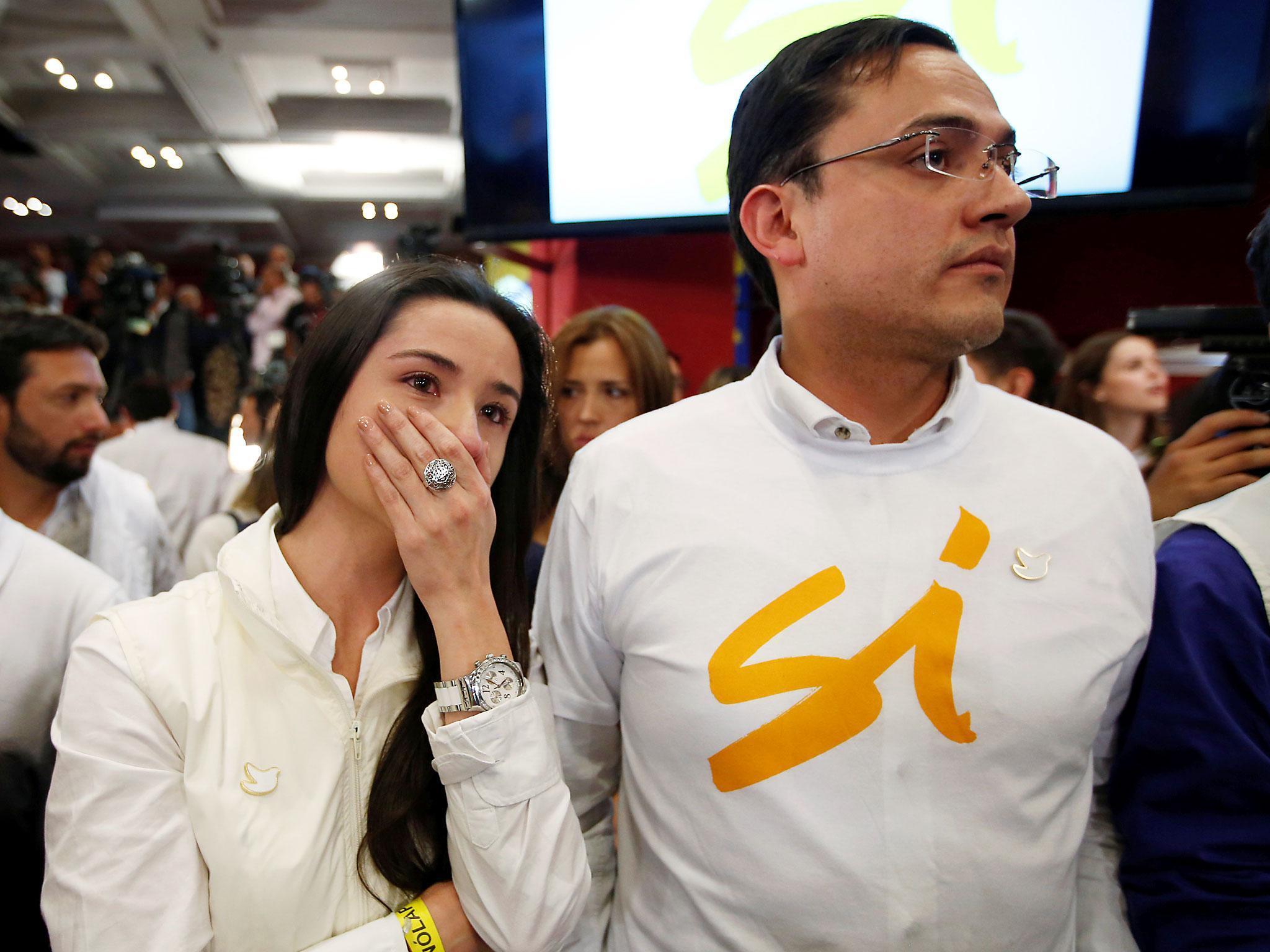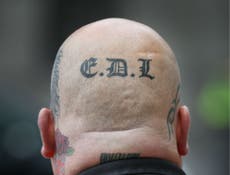Colombia, like the UK, just sabotaged itself through a referendum
As Colombians protest the 0.48 per cent majority against peace and Brits refuse to accept Brexit, it is clear that the quest for unity has left their people divided

Just like 48 per cent of the British people on the morning of 24 June, many Colombians felt a profound shock on Sunday at their country’s decision to narrowly reject a peace deal with the FARC communist paramilitary group. Although fundamentally different to the EU Referendum – Colombia was voting on a deal that would have brought a war spanning 52 years, with more than 260,000 victims, to an end – there are some surprising parallels can be drawn between this vote and Brexit.
Like David Cameron’s bid to keep Britain in the EU, the Colombian referendum was championed by Colombia’s centre-right president Juan Manuel Santos. It was hailed as a defining moment in the country’s history, and just like the Britain Stronger in Europe campaign, had the backing of world leaders, politicians, celebrities and the mainstream media. Even Pope Francis expressed his support in an attempt to win over Colombia’s Catholic population. But it wasn’t enough.
Many Colombians felt a visceral resentment towards a negotiation progress that they felt was indulgent towards the FARC. Details of the negotiation included FARC reforming as a political party and being granted a handful of seats in the national congress. Furthermore, it also ensured amnesty for the majority of the groups fighters, whilst the groups most prolific criminals would face lenient jail sentences. Just like Cameron, Santos was seen as a weak negotiator, being held hostage by those who seek to harm him.
Whilst the peace deal was supported by the political mainstream, figures similar to that of Nigel Farage and former Tory grandees emerged to campaign for a ‘No’ vote. The most obvious example of this was Santos’s predecessor Manuel Úribe, supposedly an ally of the current president, who harnessed his loyal support to rally the country’s rural masses into rejecting the deal. He achieved this by echoing the burning sense of injustice felt by many of the conflicts victims, whilst expressing fears of a communist insurgency was given political credibility.
Just last week, Santos addressed the United Nations hailing the peace deal as a reason for hope, ensuring that “there would now be “one less war on the planet.” Few expressed concern at his rather premature celebrations. Like the Brexit vote, the rejection of the FARC peace deal defied pollster’s expectations, and stunned the country’s political class. Many had predicted the deal would pass in a landslide.
Like Cameron’s decision to hold a referendum on Britain’s membership of the EU, Santos’s decision to put the deal to the Colombian people was a risk, and one they have both paid for. Following the result, Santos addressed the nation on Sunday evening to “guarantee the stability of the nation,” and, unlike Cameron, has since vowed to fight on in an attempt to save the peace deal. Although FARC have pledged to maintain the ceasefire, the vote now thrusts Colombia into a period of political uncertainty.
For both David Cameron and Juan Manuel Santos, they believed the only way to gain legitimacy with the wider public was by receiving a mandate for their reforms. Yet as Colombians took to the streets of Cartagena today in protest of the vote, which holds a 0.48 per cent majority, and as many Britain’s still refuse to accept the outcome of the EU referendum, it is clear their quest for unity have only left their peoples more divided.
Ben Kew is an English journalist who currently works for El Tiempo (Colombia)


Join our commenting forum
Join thought-provoking conversations, follow other Independent readers and see their replies